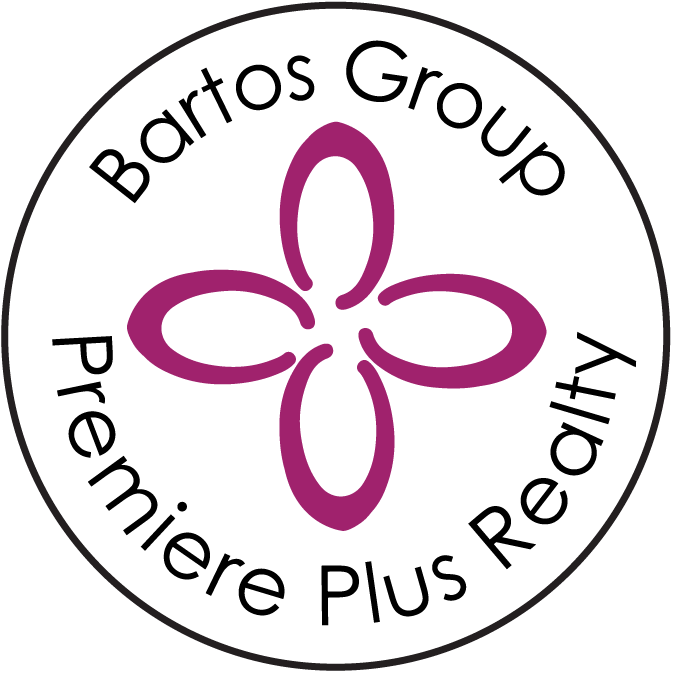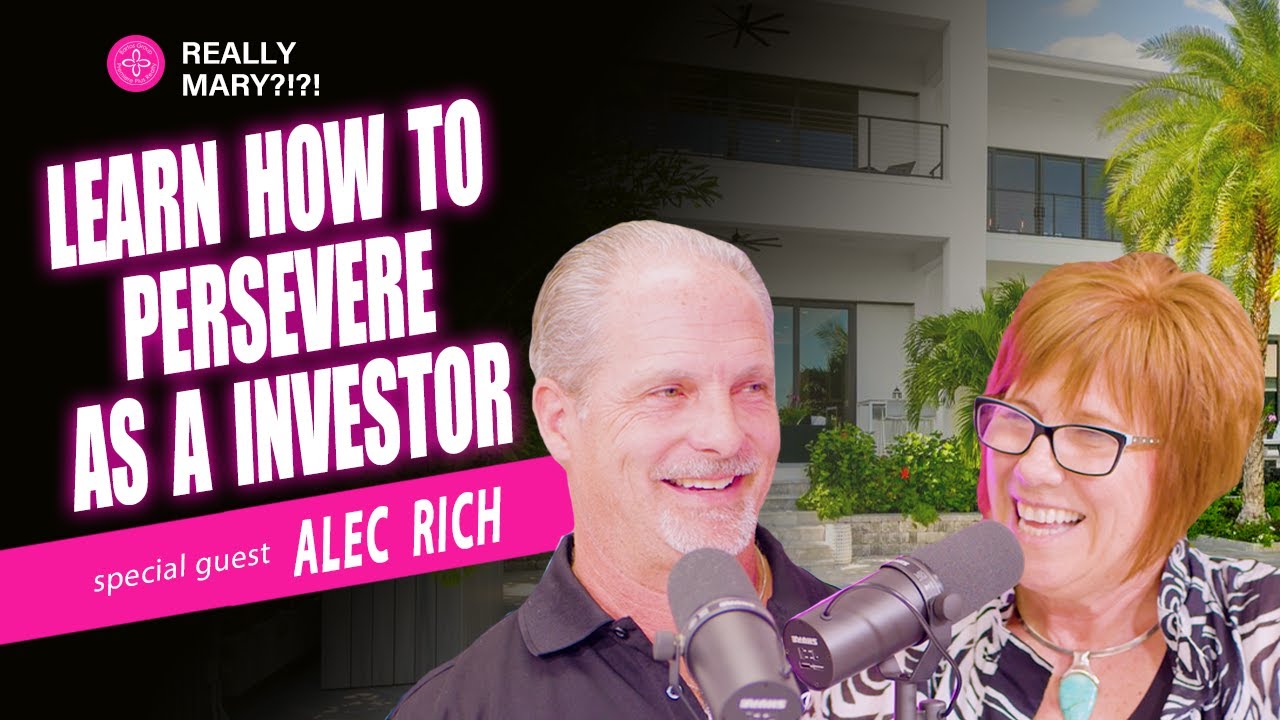
The Bartos Group presents a candid conversation featuring Mary Bartos and long-time investor Alec Rich, offering an insider’s perspective on Investment in Marco Island, Florida. In this article, the hosts explore why investors continue to bet on the island despite storms, insurance volatility, and regulatory shifts. Alec’s decade of hands-on experience—arriving for storms, rebuilding after catastrophes, and continuing to add property to his portfolio—illuminates practical lessons for anyone considering Investment in Marco Island, Florida.
Why Investment in Marco Island, Florida Still Makes Sense
Alec’s message is straightforward: demand remains strong. From sustained rental interest to long-term appreciation, his experience shows that people “still want to be on Marco Island no matter what.” That optimism is the foundation of his approach to Investment in Marco Island, Florida. Over ten years he has watched the island harden after every storm, infrastructure improve, and property values rise. For investors who evaluate risk and manage expectations, the island’s resiliency is a compelling draw.
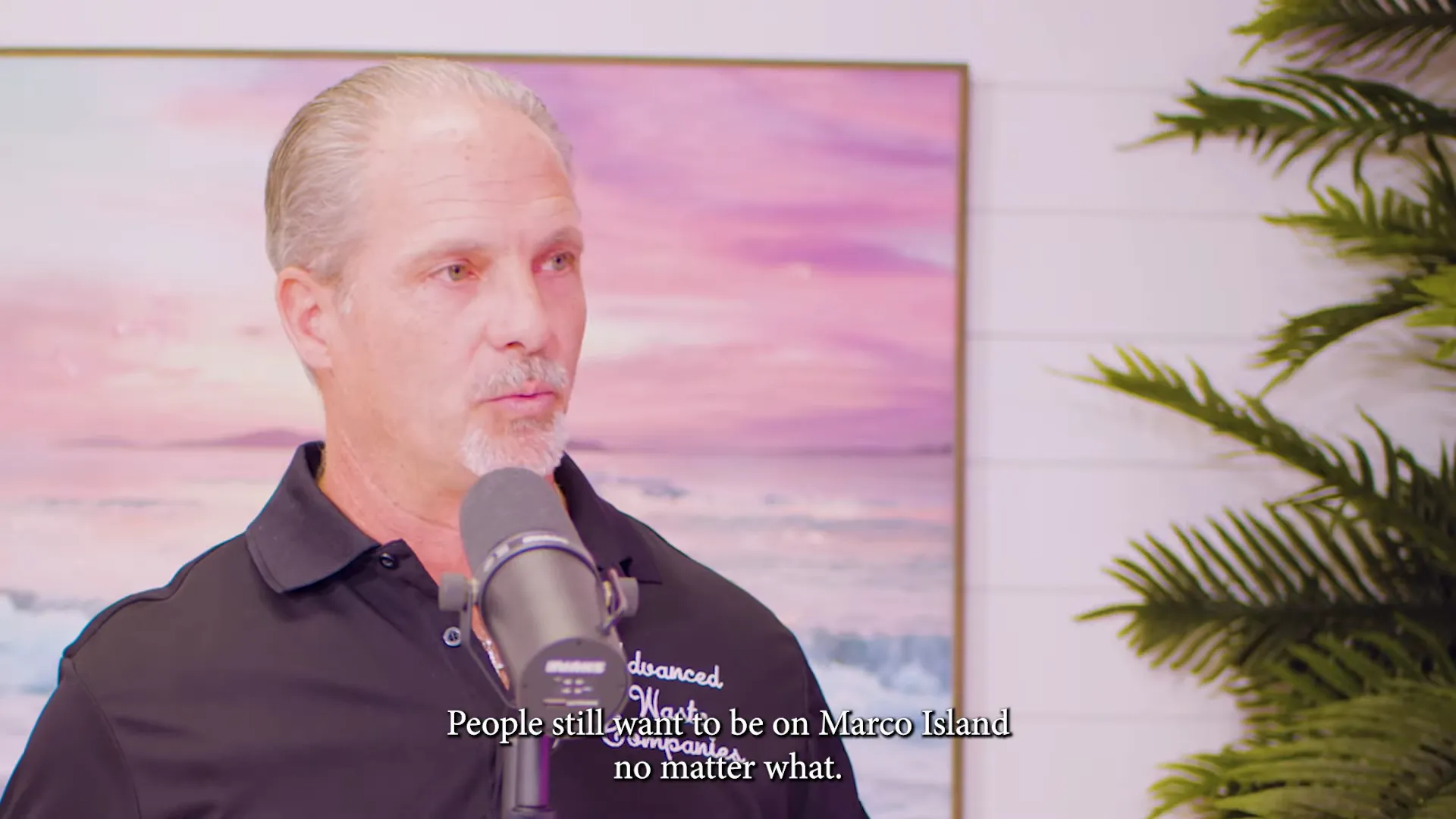
Weathering Storms: Experience, Preparation, and Recovery
Hurricanes like Irma (2017), Ian, and other major storms have given Alec a front-row seat to how Marco Island responds to large-scale damage. He emphasizes two practical behaviors that define his success: being present when it matters and staying focused on the long-term picture. Those habits come together into a consistent strategy for Investment in Marco Island, Florida.
Alec’s presence during storms is not bravado—it’s strategic. He protects his assets, preps units for weather events, and remains on site during recovery to help manage repairs, vendors, and tenant issues. “Number one is to protect my investments,” he explains. Being there after a storm allowed him to support friends and neighbors while ensuring that his properties returned to market quickly and safely.
Storm types and their lessons
- Wind-driven storms (e.g., Irma) tested structural and roofing durability. The rebuild after Irma made the island stronger.
- Storm surge events (e.g., Ian) require different mitigation—elevations, floodproofing, and water-resilient finishes became priorities.
- Repeated events force investors to think in terms of systemic resilience rather than single repairs.
For investors, that means budgeting for contingencies, choosing durable finishes in rentals, and working closely with property managers who understand the local recovery process—key elements for any serious Investment in Marco Island, Florida.
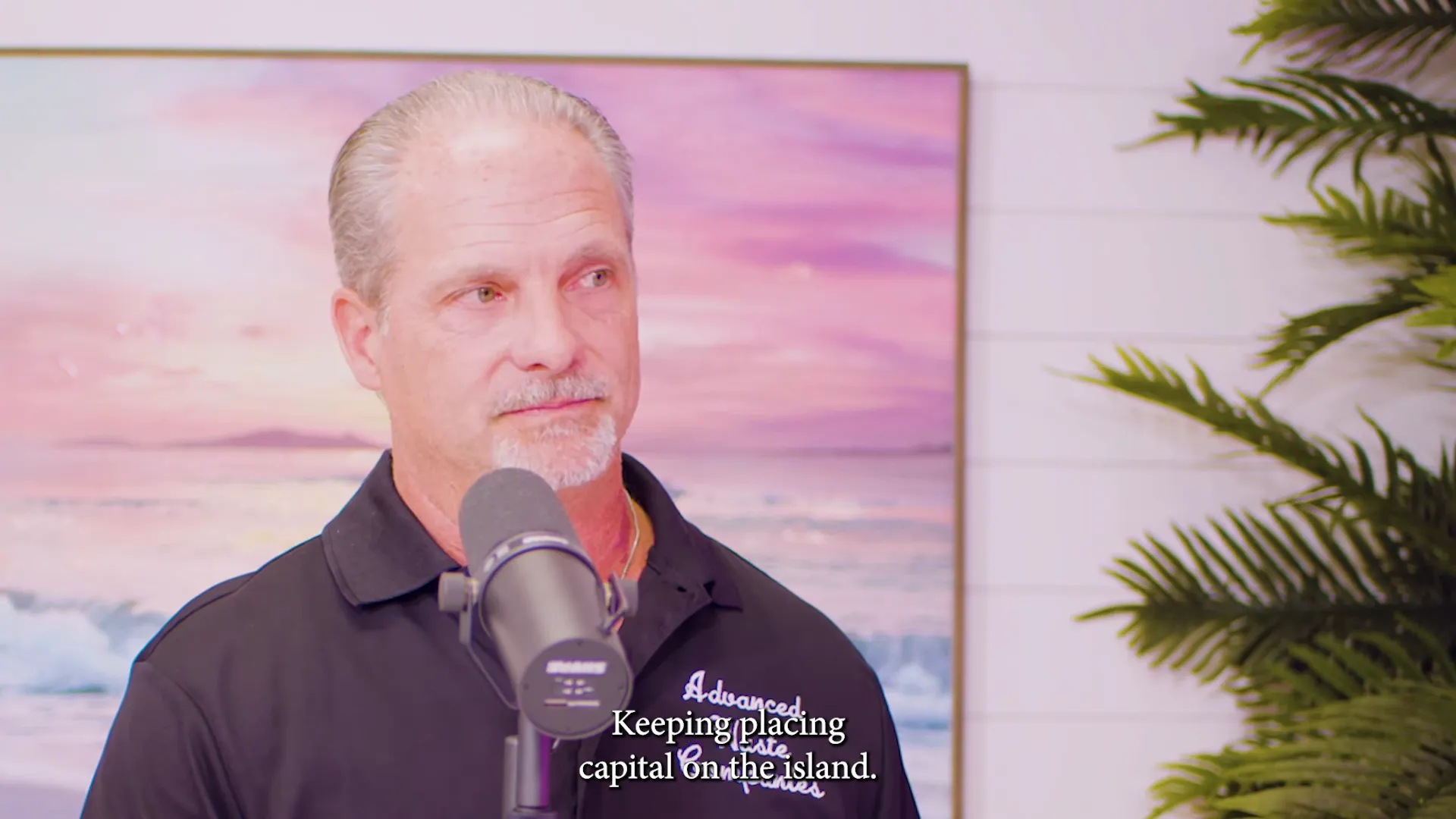
Navigating the Insurance Landscape
Insurance in Southwest Florida is no longer a static line item; it’s a central factor in the investment calculation. Alec notes that lender-required insurance standards have risen and premiums have increased “by a good amount.” He underscores a practical mindset: when insurance costs rise, investors must adapt—they don’t “take your ball and go home.”
Practical responses to insurance pressure include:
- Shop multiple carriers and work with brokers who specialize in coastal properties.
- Increase deductibles where appropriate to lower premium costs, while ensuring affordability in the event of a claim.
- Implement risk-reduction upgrades (impact windows, elevated mechanical systems, hardier exterior materials) that can reduce insurance exposure over time.
- Balance cash flow expectations against increased carrying costs—plan for tens of thousands in portfolio-level increases and model them into the overall return.
Alec’s attitude is pragmatic: “There’s always an option, there’s always a solution—you just have to pull up your bootstraps.” For investors focused on Investment in Marco Island, Florida, that resilience and willingness to absorb short-term hits for long-term gains is a common thread among those who succeed.
Regulatory Changes and the Surfside Impact
The Surfside collapse on Florida’s east coast reverberated across the state, prompting mandatory inspections, reserve studies, and new reporting requirements for condominium associations. Alec explains that high-rise and mid-rise properties saw the largest administrative and financial impacts, including increased dues and special assessments.
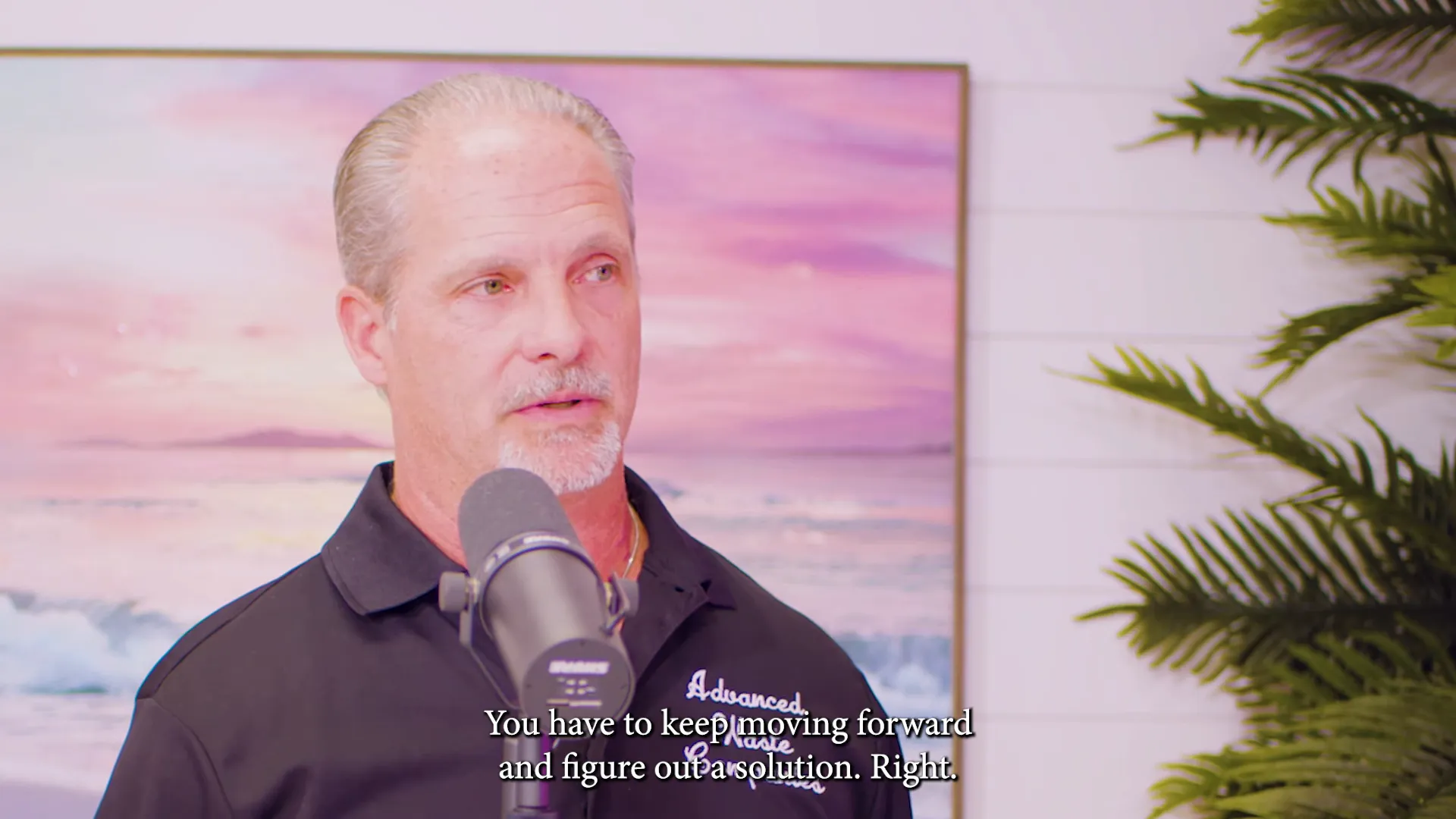
Investors who own units in associations need to be prepared for:
- Milestone inspection mandates and the related cost implications for structural reviews and repair plans.
- Potentially higher reserve requirements or one-time assessments to fund major capital repairs.
- More rigorous disclosure requirements that can affect resale timelines.
Those factors change the calculus for Investment in Marco Island, Florida, especially for buyers of higher-rise units. Alec suggests that time is often a mitigating force: assessments and dues can be phased, and revenue-side strategies (rents, seasonal premiums) help alleviate sudden financial burdens.
Practical Advice for Prospective Investors
Based on Alec’s decade on the island, here are actionable takeaways for anyone considering Investment in Marco Island, Florida:
- Buy with the long view: Expect variability. Strong returns come from patience and persistence rather than timing the market perfectly.
- Factor insurance and association costs into yields: Build realistic expense scenarios that account for rising insurance premiums and potential special assessments.
- Prioritize resilience upgrades: Impact-resistant windows, elevated utilities, and durable exterior materials reduce both downtime after storms and long-term insurance exposure.
- Work with local experts: Local brokers, property managers, and contractors know seasonal demand cycles, permitting timelines, and the quickest ways to get units rentable after repairs.
- Keep capital available: Alec continues to place capital on the island because he knows some funds will be needed for maintenance, upgrades, and assessment surprises.
These practical steps make Investment in Marco Island, Florida a manageable and vetted proposition for investors willing to plan for the known risks.
Alec’s Investment Mindset: Presence, Persistence, and Perspective
Alec’s approach can be summarized as three P’s: presence, persistence, and perspective. Presence—showing up during storms and recovery—allows him to protect assets and maintain vendor relationships. Persistence—staying invested through regulatory and insurance cycles—keeps him positioned to benefit from long-term appreciation. Perspective—focusing on the big picture—prevents short-term shocks from dictating long-term strategy.
“You cannot lose scope of the big picture.”
That quote reflects a philosophy particularly valuable for anyone evaluating Investment in Marco Island, Florida: treat intermittent setbacks as part of the investment journey, not as a reason to exit prematurely.
How to Evaluate a Property for Investment on Marco Island
When Alec evaluates a property on Marco Island, he looks at a combination of structural, financial, and market signals:
- Structural: Age of roof, impact-rated openings, elevation of critical systems, and the condition of bulkheads for waterfront properties.
- Financial: Current insurance premiums, homeowner association health (reserve studies), potential assessments, anticipated rental income, and historical occupancy rates.
- Market: Rental demand patterns (seasonal vs. year-round), proximity to beaches and amenities, and potential upside for short-term or long-term appreciation.
By combining these elements, investors can create a realistic model for returns that accounts for the particular realities of Investment in Marco Island, Florida.
Conclusion: Resilience Pays Off
After ten years of investing on Marco Island, Alec’s actions speak as loudly as his words: he continues to invest, to improve properties, and to be present when it matters most. The island has proven resilient, hardening after storms, and evolving its regulatory and insurance landscape. For investors willing to plan, adapt, and accept intermittent financial shocks, Investment in Marco Island, Florida remains a compelling opportunity.
The Bartos Group’s conversation with Alec reinforces a central truth of coastal investing: successful long-term results rely on preparation, local relationships, and an unshakable focus on the bigger picture.
Frequently Asked Questions
Q: Is Investment in Marco Island, Florida still a good idea after multiple hurricanes?
A: Yes—when approached with proper due diligence. Marco Island has demonstrated resilience over repeated storms. Investors who budget for contingencies, implement resilience upgrades, and maintain on-the-ground management can still find strong long-term returns from Investment in Marco Island, Florida.
Q: How have insurance costs affected Investment in Marco Island, Florida?
A: Insurance costs have risen and lender requirements have tightened. That said, investors can mitigate these increases by shopping carriers, adopting higher deductibles where sensible, and investing in upgrades that lower risk. For many experienced investors, increased insurance is a manageable component of overall costs for Investment in Marco Island, Florida.
Q: What should buyers consider about condominium associations?
A: Post-Surfside regulations mean stricter inspections and reserve requirements. Buyers should request recent inspection reports, reserve studies, and a clear plan for upcoming capital projects. These factors can materially affect the economics of Investment in Marco Island, Florida, especially for units above two stories.
Q: Should out-of-state investors avoid owning rental properties here?
A: Not necessarily. Many out-of-state investors successfully own and profit from properties on Marco Island by hiring reliable local property managers and contractors. Being pragmatic about travel, having clear emergency plans, and budgeting for repairs are essential for any out-of-state Investment in Marco Island, Florida.
Q: What is the single most important mindset for success?
A: Persistence. Alec’s decade of investing demonstrates that steady commitment, readiness to absorb temporary setbacks, and a focus on long-term value are the bedrock of successful Investment in Marco Island, Florida.
Contact Us Today! |
|
Providing you the experience you deserve! |
| Click me |
